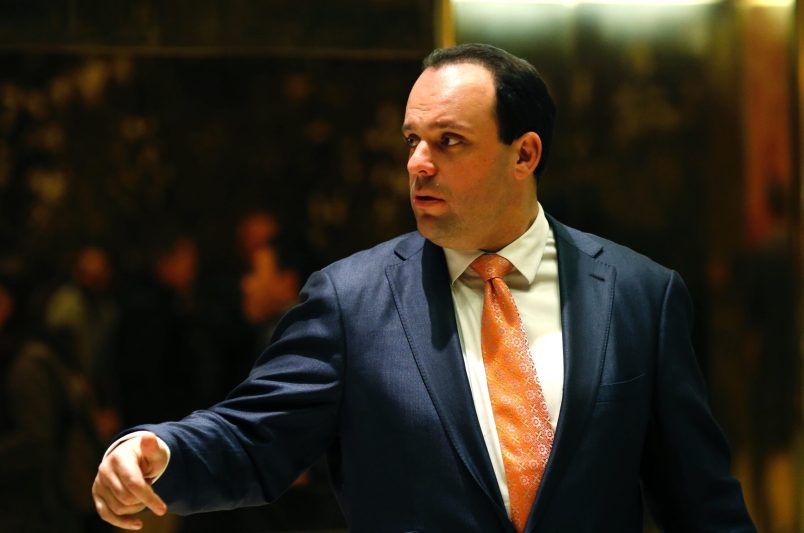On Friday I mentioned how an outfit called the “International Swaps and Derivatives Association” (ISDA), a DC lobby one imagines might in line for a bit of rebranding, got some text in the 2005 bankruptcy bill that put derivatives counter-parties (see AIG catastrophe) at the front of line in bankruptcy proceedings.
TPMDC’s Elana Schor takes a look at the worthies behind the ISDA …
Late Update: An Anonymous TPM Reader responds …
While the International Swaps & Derivatives Association (“ISDA”) no doubt has lobbied for some self-interested outcomes that likely are contrary to the public good, know that their primary role and profile in the securities industry is for something unquestionably good: to wit, they have worked very hard to standardize the trading of swaps and other non-standard securities. Understand that a swap is ultimately a contract – a written agreement with varying terms that commits its parties to pay each other certain amounts under certain circumstances (it is literally a “swap” of income streams). This is quite a bit more complicated than by a share of IBM from a broker. “ISDA agreements” conforming to standard terms and formats promulgated by ISDA have been critical to making that market work, and facilitating liquidity within it. Whether or not derivatives need more regulation (and certainly they do), it is in everyone’s interest that markets be as liquid as possible. One of the factors increasing the risk of downward-spiraling markets is illiquidity – i.e., the possibility that assets may be difficult or impossible to sell when necessary either because there is no ready market or because of barriers to sale such as the lack of common standardization (and subsequent need for costly negotiation and legal review) that ISDA has helped remedy.
So perhaps ISDA, like so many organizations, has greedy jerks involved in it and has pursued self-interest over the common good, but they are primarily known for promoting smooth and orderly markets. There are far worse players out there. Your ongoing posts implying that ISDA is worthy of nothing more than scorn and contempt are overly reductionist. You may have good points to make, but clothing them in what seems like willful know-nothing-ism detracts from your credibility with the audience that you most need to influence. Please be wary of implying, as you’ve lately been doing, that anybody involved in investment, finance and money-making is somehow an immoral enemy of the good. Lots of us in financial services are as liberal as they come.
This is probably as good a moment as any to address a few points. As someone running a growing business, who is routinely approached by investors, and exposed to all the upside and risks all that running a business entails, I have no problem with money-making. Nor do I have any problem with investment and finance. My guiding views in this whole situation amount to essentially three points — each of which is in its own way a fundamentally conservative assumption and, I think in each case, widely shared.
First, to the greatest extent possible, those who took the risks and enjoyed the upside should suffer the downside — a principle that seems straightforward but is far from the way we’re running the current response to the crisis.
Second, the financial sector has become increasingly prone to excessive risk taking and spawned a climate of opacity that has bled into fraud. For both reasons, I believe we need a substantially expanded regulatory regime.
Third, I think the financial sector has become over-swollen. I concede at the outset that this is an assumption where I am most out of my depth in terms of specialized knowledge. But based on my own understanding and the opinions of more expert minds whose opinions I respect, I think we’ve developed a basic imbalance in the structure of the economy over the last couple decades in which the financial sector, the proper role of which is to efficiently allocate capital in (or in other words, service) the real economy, is dominating the economy and organizing the real economy in its own interests.






